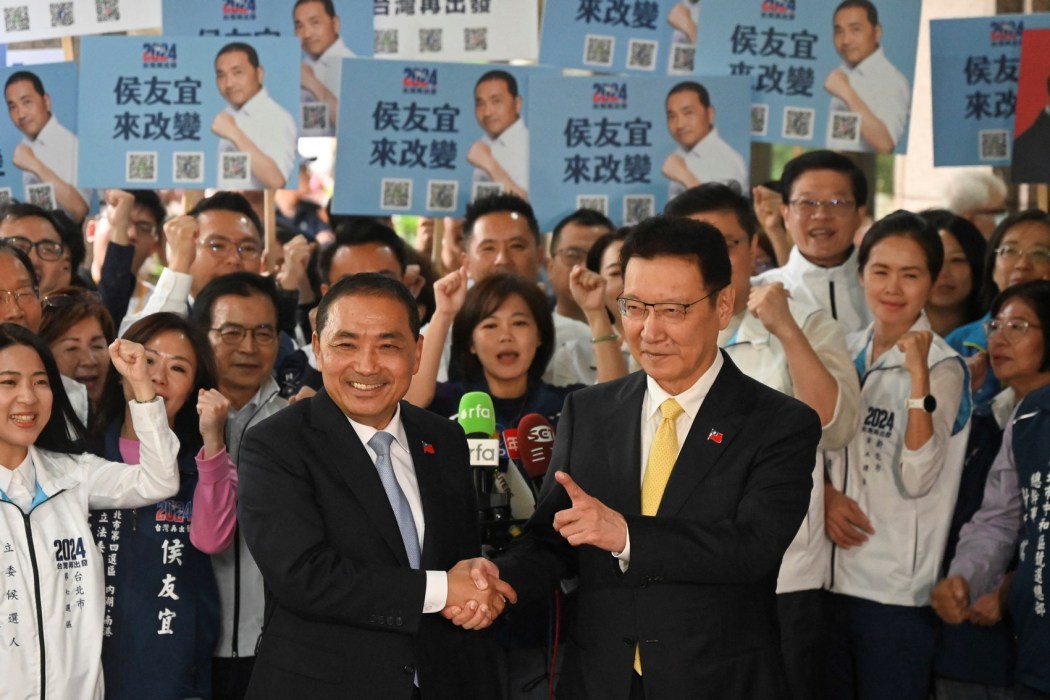Taipei, Taiwan
Taiwan’s opposition parties registered separate tickets on Friday for January’s presidential election following the dramatic last-minute breakdown of a proposed alliance to topple the ruling Democratic Progressive Party.

The lead-up to the self-ruled island’s January 13 poll is being closely watched — including by policymakers in Beijing and Washington — as it could determine the future of Taiwan’s relations with an increasingly bellicose China.
Beijing, which claims Taiwan as its territory, detests the Democratic Progressive Party (DPP) and has halted high-level communications with President Tsai Ing-wen’s administration.
To increase their chances against DPP candidate Vice President Lai Ching-te, the opposition Kuomintang (KMT) — the island’s leading pro-Beijing party — had initially sought to join forces with the less-established Taiwan People’s Party (TPP).
But the negotiations broke down in spectacular fashion on live TV Thursday night, when a televised meeting between the parties — arranged by Foxconn tycoon Terry Gou in a last-ditch attempt to bring them together — descended into cross-talk and arguments.
“The failure of the (KMT-TPP) coalition has disappointed 60 percent of the public,” KMT candidate Hou Yu-ih said at a Friday press conference before going to register his candidacy separately.
“I called Ko at the last minute, but he did not answer. We have waited until the last moment.”
Hou named former KMT legislator Jaw Shaw-kong — better known in Taiwan as a media personality — as his running mate.
The two parties’ disagreement stemmed from whether it should be Hou or TPP’s Ko Wen-je standing as the presidential candidate.
Ko, whose party is smaller, has performed above expectations, and has recently been polling neck and neck with Hou.
He arrived Friday morning to register his own candidacy and that of his running mate, Cynthia Wu, who used to run a Taiwanese financial conglomerate and has served as a TPP legislator for a year.
“There is a lack of long-term planning in policies, only short-term spending, which increases the burden on the next generation,” Ko said, criticising the DPP.
“As a leader in the opposition, I will step forward,” he added.
DPP’s Lai — whose running mate Hsiao Bi-khim is Taipei’s former envoy to the United States — said Thursday that their opponents “were still in disarray”.
“I ask you, fellow citizens — would you dare to entrust the task of governing the country to this group?” he said during a campaign event.
Both Lai and Hsiao are hated by Beijing, which has blasted them as an “independence duo” for their refusal to acknowledge China’s claim on Taiwan.
Support HKFP | Policies & Ethics | Error/typo? | Contact Us | Newsletter | Transparency & Annual Report | Apps
Help safeguard press freedom & keep HKFP free for all readers by supporting our team

LATEST FROM HKFP
HKFP has an impartial stance, transparent funding, and balanced coverage guided by an Ethics Code and Corrections Policy.
Support press freedom & help us surpass 1,000 monthly Patrons: 100% independent, governed by an ethics code & not-for-profit.










